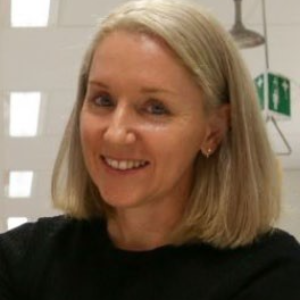Title : Adenosine, Lidocaine and Magnesium (ALM) therapy modulates early sex-specific inflammatory, immune responses and augments joint tissue healing following experimental anterior cruciate ligament rupture and reconstruction
Abstract:
Background and Aims: Frontline strategies to minimise sex-specific surgery-induced inflammation, and improve joint tissue healing following anterior cruciate ligament reconstruction (ACLR) are lacking. Adenosine, lidocaine and magnesium (ALM) therapy has been shown to blunt postoperative inflammation in other surgical models, and may lead to a more permissive healing environment within the knee after surgery. Using a rat model of non-invasive ACL rupture followed by ACLR surgery, our aims were to investigate the sex-specific effects of ALM therapy on 1) inflammation and immune activation in the first postoperative week, and 2) joint tissue repair at day 28 postoperative.
Methods: Adult male and female Sprague-Dawley rats (n=78) were randomly divided into ALM or saline control treatment groups. Non-surgical ACL rupture was performed on anaesthetised rats, followed by ACLR three days later. An ALM or saline intravenous drip was commenced prior to skin incision, and continued for 1h. In addition, an intra-articular bolus of ALM or saline was administered before skin closure. Leukocyte immunophenotyping, plasma and synovial inflammatory mediator concentrations, histopathology and gene expression of inflammatory and tissue repair markers were assessed to day 28 postoperative.
Results: Following ACLR surgery, the timing, and cellular and molecular composition of tissue repair responses differed between sexes, with males tending to have a slower healing response than females. In the early postoperative period, plasma inflammatory cytokines (IL-6, TNF-a, IL-1b) peaked later and were higher in females than males. ALM dampened this response in both sexes, while differentially altering circulating leukocyte recruitment patterns. In the operated knee, synovial TNF-a concentrations were significantly lower in ALM-treated animals at day 3 postoperative. In males, this corresponded to increased inflammatory cell infiltration and expression of inflammatory, cytoprotective and angiogenic markers in synovial tissue, while fibroblast recruitment and markers associated with the proliferative phase of healing were increased in ALM-treated females, compared to controls. At day 28 postoperative, levels of inflammatory and angiogenic mediators remained higher in the synovial fluid of males than females, with ALM dampening this response. In addition, ALM augmented expression of tissue repair markers in ACL graft and joint capsular tissue of ALM-treated males. In ALM-treated females, knee extension and gait biomechanics were improved, and graft tissue remodeling markers were increased, compared to controls. In articular cartilage of ALM-treated animals, Mmp-13 expression was blunted in males, while in females cartilage repair markers were increased.
Conclusions: ALM therapy exerts differential immunomodulatory effects between the sexes in the first postoperative week, leading to accelerated healing patterns within the knee 28-days after ACLR surgery in a rat model. Our findings suggest the possibility of personalised approaches to management of postoperative inflammation and improved clinical outcomes in males and females after ACLR surgery.




